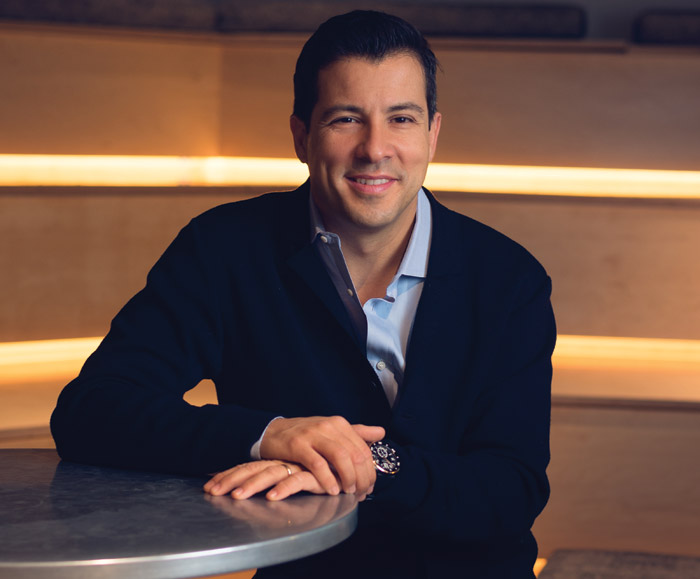Katrin Larkin
Katrina Larkin founded music and arts festival The Big Chill festival and grew the event over 16 years to become an internationally loved and recognised brand attracting more than 40,000 visitors. Her business partner Enrico Sanna was a global hotel executive who managed high-end hospitality at Deutsche Bank. Together they launched Fora, which has taken the co-working model a step forward into ‘pro-working’.
The workplace world is quickly dividing itself into the have and have-nots. The haves, the Google, Facebook and Amazons, are very focused on providing exceptional working spaces for their people with a high level of hospitality through great food, wellbeing and conveniences such as creches and retail outlets. They are all aimed at creating an environment where people don’t want to go home. The have-nots are stuck in the corporate world where the occupier walks through a turnstile, past the security guard and sits at the same desk every day with few amenities. Co-working shows that you don’t have to work for a Facebook or Google to have an amazing workplace and a great day at work. Most companies don’t have the budget to do what Apple does, so they have to share some of those elements to afford it. That’s where co-working comes in.
Enrico Sanna
Co-working allows small businesses to provide the same culture and lifestyle of a large business. Today’s SMEs are not stuck in uninspiring offices. Through co-working spaces, they can offer their employees a wider variety of wellbeing options, from meditation and yoga classes and running clubs to cookery workshops, while also providing access to a wide variety of people through the extended co-working community.
The design of co-working spaces is now massively impacting on traditional office design. Large occupiers are constantly scratching their heads asking how to make their workplace better. In the recent new offices of companies such as Bloomberg and McKinsey you can see the co-working influence everywhere.
Pro-working is the new co-working. Co-working is all about beanbags and coffee; there is a low bar to entry. Pro-working is about creating a professional space that is carefully curated. We design our pro-working spaces in the same way you do a house – each space connects well to another but is designed for a different activity at a different time. A kitchen is an eating space at lunchtime, but a meeting space at different times of the day. The library is for more studious, quiet work. There are nooks for hiding yourself away to read uninterrupted; rooftops to chat and be inspired on. It’s the detail in these spaces that makes the difference – the type of coffee you would serve to your friends; the sofa you’d save for years to invest in; the sort of magazines you only find in exclusive hotels – all carefully curated for that specific location.



